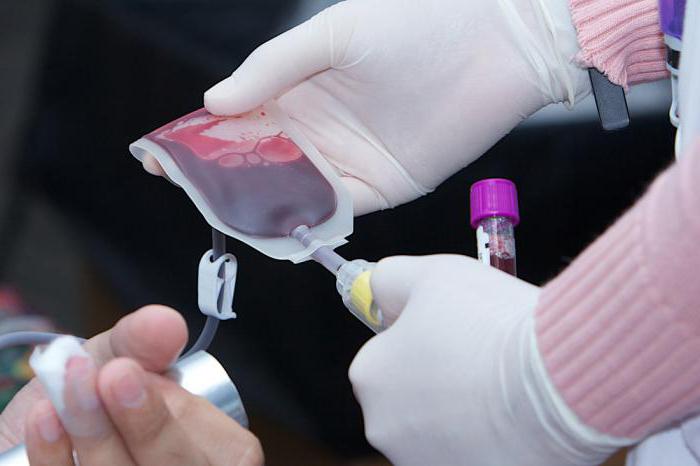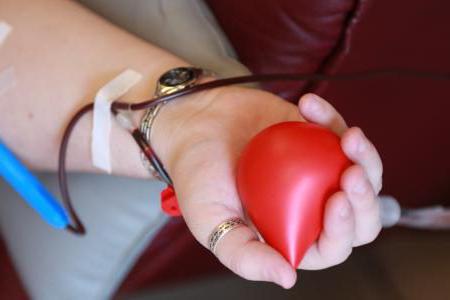Blood transfusion is an essential medical procedure that saves hundreds of thousands of lives every day. Moreover, blood cannot be reproduced artificially, it can only be taken from another person. It was this fact that contributed to the fact that donors began to appear all over the world - people who donate their blood to help others. It is noteworthy that you can donate blood for money or for free, it will be completely your choice.
Donation - a noble mission or way of earning
Many are now interested in how to donate blood. Not all of these people are guided by a desire to help their neighbor, for many it is a stable way of earning. However, in any case, regardless of motives, donors help doctors save lives, and therefore, the nobility of this procedure can not be overestimated.  At the same time, not every person will take blood for transfusion. To donate, you must meet many requirements that relate to health status. All the criteria necessary for blood donation and contraindications, which can put an end to donation, will be discussed in detail in this article.
At the same time, not every person will take blood for transfusion. To donate, you must meet many requirements that relate to health status. All the criteria necessary for blood donation and contraindications, which can put an end to donation, will be discussed in detail in this article.
How to become a blood donor
So, having decided to become a donor, you should know what requirements are presented to the candidate:
- have weight sufficient for its height and age;
- good overall health and well-being on a blood sampling day;
- age not less than 18 and not more than 60 years.
If you meet all the criteria, the next question is: "Where to donate blood?" As a rule, these are blood transfusion stations, they are located in every city. You need to go there with an identity card - a passport. Men also need to have a military ID with them. After registration, you must fill out a questionnaire, answering questions as honestly as possible. It should be borne in mind that if you give incorrect answers that can lead to some consequences for the recipient, you can be held accountable, according to the law.
Next, you will be asked to undergo an examination, which includes a complete blood count:
- general;
- biochemical;
- for hepatitis;
- syphilis;
- HIV infection.
After the blood is donated, you need to visit a therapist. When the test results are ready, you can act as a donor, provided that no pathologies are detected. As a rule, this is the next day after applying. This procedure is only necessary with an initial application for donation. No further waiting is required.
Contraindications to donation
There are a lot of factors that prohibit becoming a donor. Moreover, they are divided into absolute and temporary. In the first case, we mean people who have suffered a specific disease that affects the composition of the blood. The list of diseases that prohibit donating blood is very extensive, it includes more than 30 diseases, which are included in the following sections:
- viral infections (HIV, hepatitis, syphilis);
- heart disease (ischemia, hypertension, malformations, myocarditis and other diseases of this organ;
- lack of vision, speech or hearing;
- skin diseases;
- blood diseases;
- malignant tumors;
- lung diseases (tuberculosis, asthma, etc.)

In addition to absolute prohibitions, there are also temporary ones:
- pregnancy and lactation;
- any operations, including abortion;
- stay abroad later than 2 months before blood donation;
- infectious diseases that are not mentioned in the list of absolute prohibitions;
- menstruation;
- vaccinations;
- antibiotic treatment;
- acupuncture and tattooing;
- tooth extraction;
- period of exacerbation of allergies.
The term of a temporary ban on donation is from 10 days to a year and depends on the specific reason.
Donation Benefits
People who are interested in becoming a blood donor also want to know what privileges this procedure provides. In fact, for this category of people, the state provides benefits that are quite attractive. So, the person who donated blood has the right not to go to work on the day of the procedure and the next. At the same time, the time of absence from service is paid. On the day of blood collection, the donor is provided with free food. These promotions apply to all categories of people who donate blood. At the same time, there are additional benefits for those who donate blood for free and those who are awarded the title of Honorary Donor. They will be discussed below.
Free blood donation
Many people who decide to become donors are guided by moral principles and decide to donate blood for free. The state provides certain benefits for the category of people who donated blood for a year without payment, during which they took at least two times the maximum dose:
- temporary disability allowance with the preservation of full wages for a year. This item does not depend on work experience and illness;
- free trips to sanatoriums or rest homes at the place of work or study;
- free distribution of iron preparations and vitamins throughout the year;
- 25% allowance for scholarships from the local budget. This promotion applies to students and has a term of six months.
Honorary donor - who is it and how to become one
The title of honorary donor was introduced in Russia in 1983 and is valid to this day. This is a badge, which implies additional benefits.  Its receipt depends on the number of visits to blood transfusion stations on a free basis. Therefore, if your goal is a blood donor for money, then you won’t be able to become an honor. So, to get this badge, you must:
Its receipt depends on the number of visits to blood transfusion stations on a free basis. Therefore, if your goal is a blood donor for money, then you won’t be able to become an honor. So, to get this badge, you must:
- donate blood or its components 40 times;
- Donate plasma 40 times, then donate blood another 25 times;
- donate plasma 60 times.
Considering that you can donate your blood only a certain number of times during the year, it will take at least 10 years to get this title. However, given the privileges it grants, many consider such a long way to be justified. So, becoming an honorary donor of Russia, you can count on the following benefits:
- receiving an annual pension of 12 thousand rubles;
- the right to undergo treatment in municipal and state healthcare institutions out of turn;
- obtaining preferential vouchers from the place of work or study as a matter of priority;
- the opportunity to get a vacation at a convenient time.
It should be borne in mind that in order to maintain the title, you must continue to donate blood at least 3 times a year.
Donation for a fee
If you consider blood donation as an opportunity for extra income, of course, you are interested in how much donors are paid. Until 2013, 435 rubles were paid for blood donation. This amount was supposed to be spent on lunch to restore strength. However, it could vary, depending on the region. For example, in St. Petersburg, 554 rubles from the local budget were additionally paid to this money. It concerned active donors who donated blood at least 3 times a year.
 However, since 2013, the law on paid donation was canceled. Russia decided to follow the example of European states, where donation is an absolutely free procedure. Authorities explain their decision by saying that people who consider donating blood as an opportunity to earn money may provide inaccurate data about their health.
However, since 2013, the law on paid donation was canceled. Russia decided to follow the example of European states, where donation is an absolutely free procedure. Authorities explain their decision by saying that people who consider donating blood as an opportunity to earn money may provide inaccurate data about their health.
However, donation did not become completely free. They still pay money to owners of a rare blood group, namely the fourth negative. Also, if you donate plasma or only platelets, then you can get from 800 to 1500 rubles for this procedure.Thus, if you decide to donate blood for money, the state provides such an opportunity. However, it should be borne in mind that donating plasma and platelets is a more complicated procedure than simply donating blood. The recovery period lasts longer and may require a hospital stay.
Also, given the fact that the abolition of paid donation has sharply reduced the number of people who want to donate blood, some regions continue to practice payment. For example, in Moscow, blood is taken at the same points, and the payment has not changed, only the local budget is the source, not the federal one.
How many times can I donate blood
Important questions are how much blood can be donated and whether this procedure does harm to the body. According to the recommendations of doctors, the maximum amount of blood donation per year for men is 5 times, for women - no more than 4. At the same time, whole blood is allowed to be donated with an interval of at least 60 days. As for plasma, it can be donated twice a month, provided that at least a month has passed after donating whole blood.
Regarding the effect on the body of this procedure, doctors say that donation is only beneficial. They explain this by the fact that only absolutely healthy people can donate blood, and for them the loss of 400 mg is not significant. In addition, blood loss causes the body to mobilize, as well as improve metabolism. For blood sampling, only disposable instruments are used, which are opened in the presence of a donor. And finally, all the rights of a blood donor are protected by law.
Blood donation preparation
So, having learned how to become a blood donor, and having come to the decision to donate blood, it is necessary to observe a number of rules in order for the blood sampling to be as effective as possible:
- exclude fatty foods and alcohol from the diet at least three days before the procedure;
- sleep on the eve of at least 8 hours;
- abstain from cigarettes at least an hour before the procedure;
- dinner in the evening before blood donation should be light, and only sweet tea and bread are allowed before the procedure;
- after blood sampling, it is recommended to refrain from physical exertion and driving during the day, and also not to drink alcohol.
4 easy steps to become a donor
You decided to become a donor. In order for the solution to come true, you need to go through 4 steps:
- - Find out where to donate blood. This can be done at any blood transfusion station in your city. Just find out the address of the nearest;
- - Really evaluate your health, remembering in detail everything that you have been ill from childhood;
- - Follow the rules of preparation for the blood donation procedure;
- - Go to the selected blood collection point and join the Russian donor community.

The word "donor", translated from Latin, means a gift, to give. And, perhaps, having learned how to become a blood donor, and having come to the decision to donate your blood regularly, you will save more than one life.








